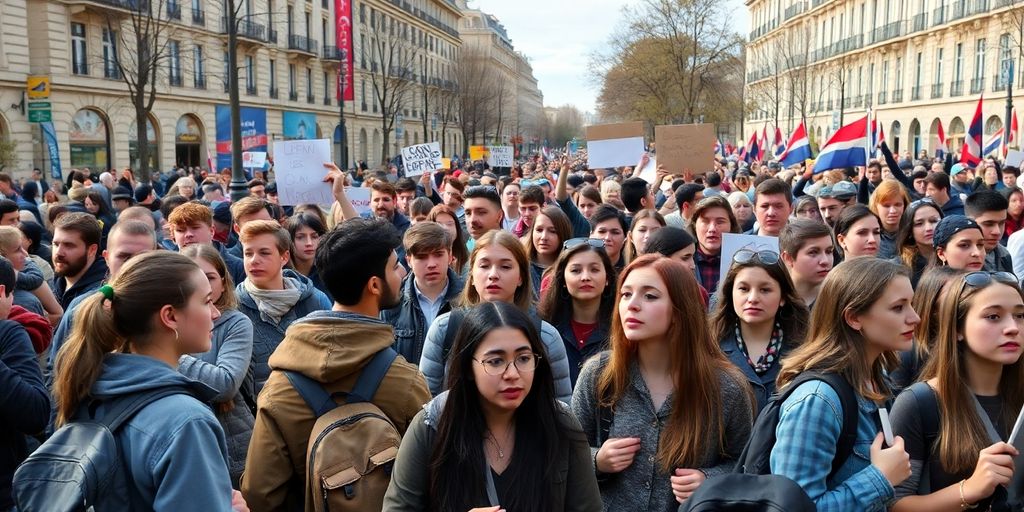Student protests have erupted across Serbia in response to the tragic collapse of a canopy at the Novi Sad Railway Station, which resulted in the deaths of 15 individuals. Despite government concessions, including the release of investigation documents and promises of increased funding for higher education, students remain resolute in their demands for accountability and justice.
Key Takeaways
- Protests initiated after the November 1 canopy collapse at Novi Sad Railway Station.
- Students demand full transparency regarding the renovation documents and accountability for those responsible.
- Government has promised to increase higher education funding by 20% and release detained students.
- Protests continue despite government claims of meeting demands.
Background of the Protests
The protests began following the tragic incident on November 1, when a canopy at the Novi Sad Railway Station collapsed, killing 15 people, including children and elderly individuals. This disaster has been attributed to alleged corruption and negligence in the oversight of construction projects, particularly those involving foreign contractors.
In the wake of the incident, student organizations mobilized to demand justice and accountability. They have organized protests and blockades at various universities across the country, emphasizing the need for a thorough investigation into the circumstances surrounding the collapse.
Government Response
In an attempt to quell the unrest, the Serbian government has taken several steps:
- Release of Documents: The government has begun publishing documents related to the renovation of the Novi Sad station, which students demanded for transparency.
- Increased Funding: President Aleksandar Vučić announced plans to increase funding for higher education by 20%, although this decision has yet to be ratified by the parliament.
- Release of Detained Students: The government has stated that all students arrested during protests will be released, and future convictions will be pardoned.
Despite these concessions, students have expressed dissatisfaction, claiming that their core demands remain unmet. They continue to call for:
- Complete documentation regarding the station’s renovation.
- Prosecution of individuals responsible for the canopy collapse.
- Accountability for those who attacked students during protests.
Ongoing Protests
Protests have persisted, with students blocking access to over 40 university faculties across Serbia. Demonstrators have expressed their determination to continue their actions until their demands are fully addressed. Many students feel that the government’s response has been inadequate and that the issues of corruption and negligence must be confronted head-on.
During recent protests, incidents of violence have occurred, including an attack on students by individuals allegedly affiliated with the ruling party. This has further fueled the students’ resolve to stand against what they perceive as systemic oppression and disregard for their safety.
Public Support
The protests have garnered significant public support, with citizens providing food, supplies, and solidarity to the demonstrators. This grassroots backing highlights the widespread discontent with the government and its handling of the situation.
As the protests continue, the Serbian government faces increasing pressure to address the students’ demands and restore public trust. The outcome of this unrest could have lasting implications for the political landscape in Serbia, as citizens call for greater accountability and transparency from their leaders.
Sources
- Student protests in Serbia continue amid incidents, N1.
- Serbia Students Continue Protests Despite Government Concessions | Balkan Insight, Balkan Insight.
- Serbian students refuse to end blockade over deadly station collapse | Daily Sabah, Daily Sabah.
- Serbian president agrees to protesters’ demands after weeks of unrest | Euronews, Euronews.
- Protests in Serbia continue – The Globalist 3499 | Monocle, Monocle.






